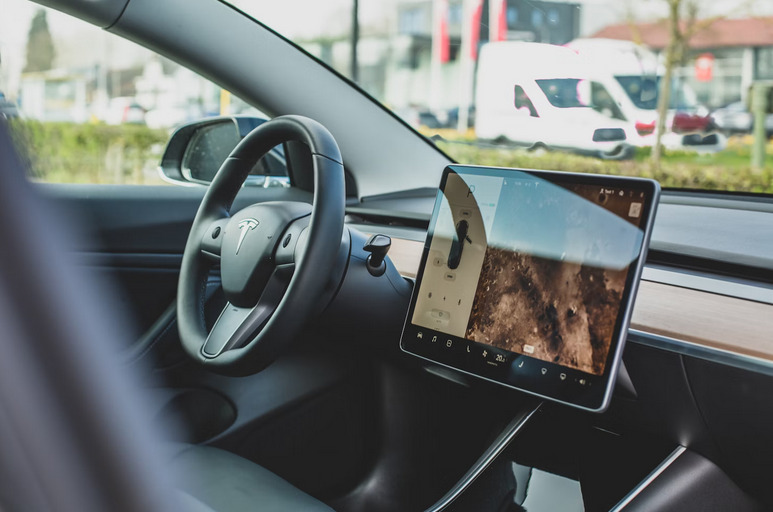Self-driving cars have rapidly shifted from a futuristic concept to a tangible reality. With advancements in technology, companies like Tesla, Waymo, and Uber are investing heavily in autonomous vehicles, aiming to transform the way we commute. As self-driving vehicles become more prevalent on the roads, it’s crucial to examine how this innovative technology is reshaping the traditional driving experience.
Enhanced Safety
One of the major advantages of self-driving automobiles is their ability to improve road safety. Autonomous cars are outfitted with powerful sensors, cameras, and AI systems that can identify and react to possible threats faster than human drivers. Self-driving cars have the potential to drastically decrease crashes and save lives by removing human error, which accounts for the bulk of traffic accidents.
Convenience and Comfort
Self-driving cars offer unparalleled convenience for commuters. Instead of focusing on the road, passengers can relax, work, or even sleep during their journey. This newfound free time can lead to increased productivity and reduced stress levels for individuals who no longer have to deal with the hassles of daily traffic congestion.

Accessible Transportation
Autonomous vehicles have the potential to transform transportation for those with impairments or restricted mobility. Self-driving automobiles can provide independence and freedom to persons for whom traditional modes of mobility may have limitations. Self-driving cars have the potential to improve many people’s lives by offering a safe and dependable form of transportation.
Environmental Impact
Self-driving automobiles have the potential to cut carbon emissions and lower the environmental impact of regular combustion engine vehicles. Autonomous cars can help to create a more environmentally friendly and sustainable transportation system by optimizing routes, minimizing traffic congestion, and boosting electric power.
Challenges and Ethical Considerations
Despite the numerous benefits of self-driving cars, there are also challenges and ethical considerations that must be addressed. Questions regarding data privacy, cybersecurity, liability in case of accidents, and the impact on employment in industries such as transportation and logistics need to be carefully examined as autonomous vehicles become more widespread.
Self-driving cars are poised to revolutionize the driving experience in ways we never thought possible. From enhanced safety and convenience to improved accessibility and reduced environmental impact, autonomous vehicles have the potential to reshape the future of transportation. As we traverse this new era of mobility, we must welcome innovation while simultaneously considering the ethical and societal ramifications of this disruptive technology. The driving experience may never be the same again, but the possibilities for a safer, more efficient, and sustainable future are endless.…



 Bentley is yet another car manufacturer that produces some of the most luxurious cars in the world. This British company has been around since 1919 and has been owned by some of the wealthiest and most famous people on the planet.
Bentley is yet another car manufacturer that produces some of the most luxurious cars in the world. This British company has been around since 1919 and has been owned by some of the wealthiest and most famous people on the planet. This German company has been around since 1931 and is known for making some of the best sports cars in the world. Celebrities such as Jerry Seinfeld, Tony Stewart, and John Mayer have all been spotted driving Porsches. If you’re looking for a car that’s both luxurious and fast, then this is the one for you.
This German company has been around since 1931 and is known for making some of the best sports cars in the world. Celebrities such as Jerry Seinfeld, Tony Stewart, and John Mayer have all been spotted driving Porsches. If you’re looking for a car that’s both luxurious and fast, then this is the one for you.
 look sleek and will always turn your head. However, you must decide what your purpose for buying a new car is going to be. You must do this before you leave home because once you start looking, it’s hard to turn back. For example, if you are looking for an economical car for driving daily in the city, an SUV or a four wheel gas guzzler would not be the right choice. Also if you have a family, a two-door sports car may not be the best option. Decide on what types you will buy before you head out.
look sleek and will always turn your head. However, you must decide what your purpose for buying a new car is going to be. You must do this before you leave home because once you start looking, it’s hard to turn back. For example, if you are looking for an economical car for driving daily in the city, an SUV or a four wheel gas guzzler would not be the right choice. Also if you have a family, a two-door sports car may not be the best option. Decide on what types you will buy before you head out. There are quite a few vehicle manufacturers in the world today. You may already have a brand in mind but if you do not, consider a brand that is popular in your city or country as you will need to have easy access to maintenance, repairs, and parts. If you buy a unique car, from a brand that does not have proper service facilities in your area, you may have to travel long distances to get a part or even do a service. Many brands that are common will have well set up service centers and ample spares available in the area.
There are quite a few vehicle manufacturers in the world today. You may already have a brand in mind but if you do not, consider a brand that is popular in your city or country as you will need to have easy access to maintenance, repairs, and parts. If you buy a unique car, from a brand that does not have proper service facilities in your area, you may have to travel long distances to get a part or even do a service. Many brands that are common will have well set up service centers and ample spares available in the area.